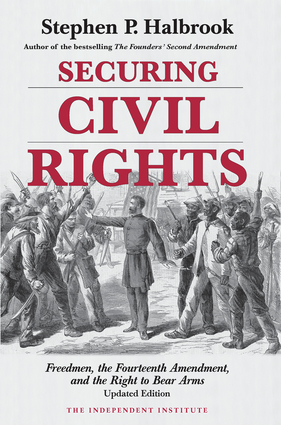

Securing Civil Rights
Freedmen, the Fourteenth Amendment, and the Right to Bear Arms
HISTORY
246 Pages, 6 x 9
Formats: Paperback, ebook: EPUB
Paperback, $22.95 (US $22.95) (CA $25.95)
Publication Date: March 2010
ISBN 9781598130386
Overview
Unique and well-researched, this study concentrates on the right to keep and bear arms and analyzes the incorporation of the Bill of Rights into the Fourteenth Amendment. Examining the history of the recognition of the right of freedmen to keep and bear arms in the period between 1866 and 1876, this comprehensive volume analyzes the extent to which American political society was willing to secure the same civil rights to all without regard to race or previous condition of slavery.
Reviews
#&8220;Halbrook has written a book that contributes significantly to our understanding of the linkage between the Second and Fourteenth Amendments. Although his primary concern has been to bring back the Second Amendment from a moribund state in American jurisprudence, Halbrook#&8217;s efforts also shed considerable additional light on broader questions.#&8221; #&160;#&8212;Journal of Southern History
#&8220;In his thorough analysis of Congressional debates, Halbrook makes quite clear the point that the framers of the Fourteenth Amendment saw Second Amendment guarantees as essential to the political liberty of the individual American citizen.#&8221; #&160;#&8212;American Journal of Legal History
#&8220;Halbrook does an impressive job of gathering evidence not only from the speeches of Bingham and Howard before, during, and after ratification of the Fourteenth Amendment, but from a variety of other members of Congress, from newspaper coverage, and from law books of the day.#&8221; #&160;#&8212;National Review
Author Biography
Stephen P. Halbrook has taught philosophy and law at Tuskegee Institute, Georgetown University, Howard University, and George Mason University. He has won three cases he argued before the U.S. Supreme Court, including Printz v. United States, which overturned portions of the #&8220;Brady Bill#&8221; requiring local police to enforce federal gun control regulations. He is the author of various books, including The Founders' Second Amendment. He lives in Fairfax, Virginia.



